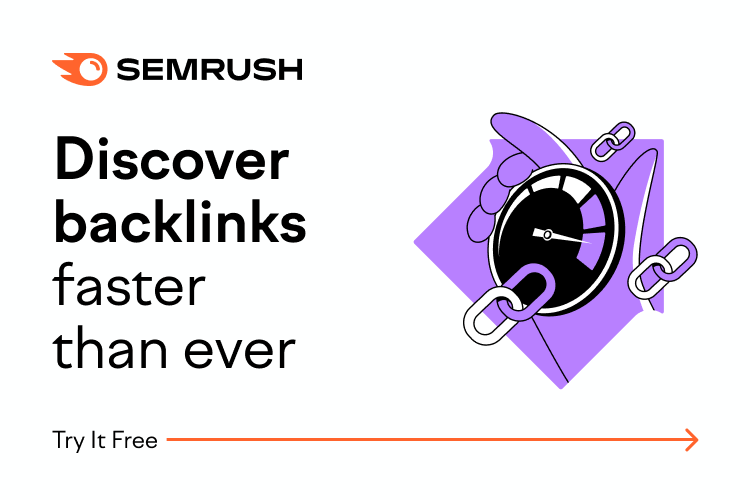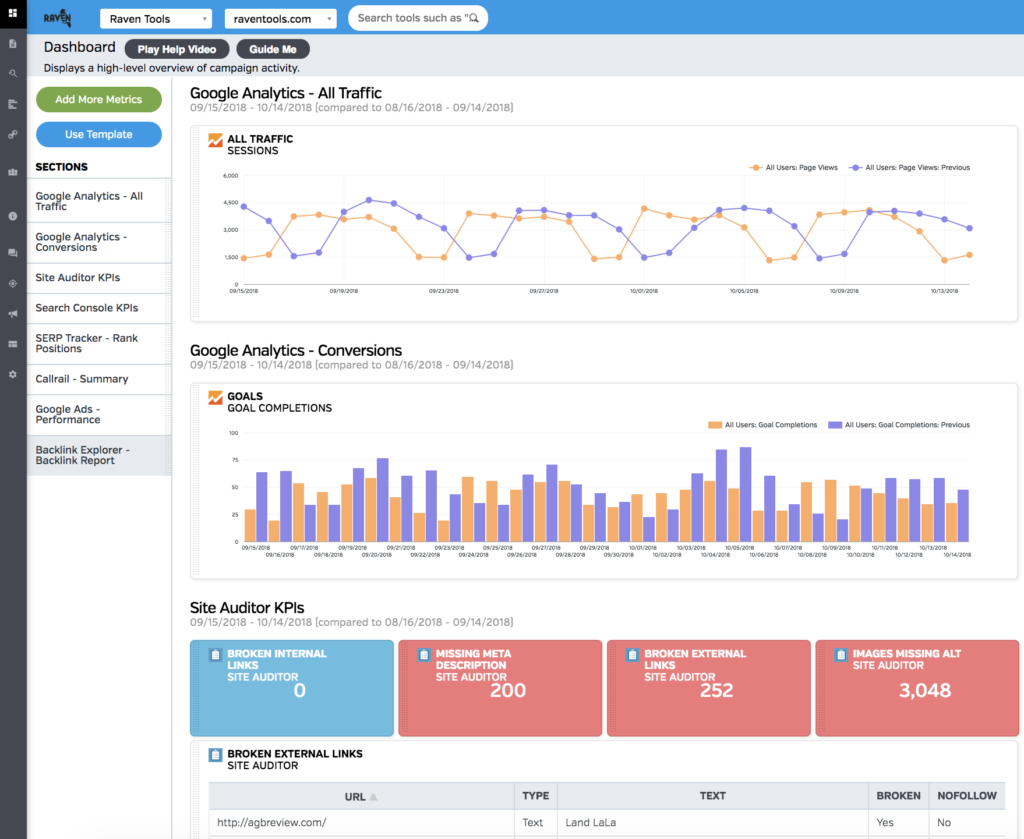What are backlinks?
Backlinks, also known as inbound links or incoming links, are links from external websites that point to a specific page on your website. They are an important factor in search engine optimisation (SEO) because they signal to search engines that your website is reputable and valuable. It lets readers know that your site is one to read and provides a certain level of confidence.
When other websites link to your website, it can increase your search engine ranking and drive more traffic. And it helps boost your domain authority. Which, you know I bang on about.
There are many ways to get backlinks, such as by creating high-quality content that other websites want to link to (probably the best way if you ask me), participating in online communities and forums related to your industry, and reaching out to other websites to ask for a link.
How important are backlinks for SEO?

Backlinks are hugely important. Link I’ve suggested in the title, backlinks are basically to SEO what the avocado is to any meal. Some SEO specialists even purport it to be one of the top factors. In fact, Google purports it to be one of its top three ranking factors!
When other websites link to your website, it can increase your search engine ranking and drive more traffic to your site.
However, it’s important to remember that the quality of the backlinks you have is more important than the quantity. Having a large number of low-quality backlinks can actually harm your search engine ranking. It’s also important to note that backlinks are just one factor among many that search engines consider when ranking websites. Other factors include the quality and relevance of your website’s content, the structure and organisation of your website, and the user experience provided by your website.
To improve your search engine ranking, it’s important to focus on building a robust and diverse backlink profile by acquiring high-quality backlinks from a variety of reputable websites. And these websites need to have a higher domain authority than your website. Of course, the higher, the better.
What is a high-quality backlink?
A high-quality backlink is a link from an external website to your website that is considered valuable by search engines. These types of backlinks are important for search engine optimisation (SEO) because they signal to search engines that your website is one that needs to be read and will be credible. You know, one that follows the EEAT formula.
There are several factors that contribute to the quality of a backlink:
- Relevance: A high-quality backlink comes from a website that is related to your industry or niche.
- Authority: A decent backlink comes from a website that is well-established and has a strong reputation.
- Trustworthiness: It comes from a website that is trustworthy and free from spam.
- Anchor text: It uses descriptive and relevant anchor text that accurately reflects the content of the linked page. In an ideal world, you want the other website to link to your page or post with the exact SEO keyword you have optimised that blog post or page for.
- Context: A high-quality backlink is placed in the context of relevant and valuable content.
It’s important to focus on building a strong, diverse backlink profile by acquiring these linkbacks from a variety of reputable websites. This can help improve your search engine ranking and drive more traffic to your site.
What domain authority should you place a backlink on?
Domain authority (DA) is a metric that predicts how well a website will rank on search engines. It is based on a number of factors, including the number and quality of backlinks pointing to a website, the age of the domain, the overall quality of the website’s content, and the website’s user experience.
You really need to be linking back from a website that is pretty high because websites with a high DA are more likely to rank well on search engines, and a backlink from a high-DA website can help improve the search engine ranking of the linked website. However, it’s important to remember that the quality of the backlink is more important than the domain authority of the linking website. A high-quality backlink from a website with a low domain authority can still be valuable, while a low-quality backlink from a website with a high domain authority can be harmful.
It’s also worth noting that domain authority is just one factor that search engines consider when ranking websites. Other factors, such as the quality and relevance of a website’s content, the structure and organisation of the website, and the user experience provided by the website, are also important.

Tips for link building:
Now, there’s no point putting the horse before the cart. Don’t leap into your backlinking project before you have written exceptional content. That means your main web pages need to be optimised and well-written, and you should have a handful of excellent cornerstone content blog posts.

But if you have that in place, here are my recommendations for starting to acquire backlinks that will take your SEO strategy to the next level.
- Create high-quality content: One of the most effective ways to get other websites to link to yours is to create content that is informative, helpful, and valuable. It has to be content that people can actually have key takeaways from and will seek out to learn more about a topic. When you create content that people want to link to, it can help attract natural backlinks. Check out my online blogging course that teaches you how to write content that people actually want to read.
- Participate in online communities and forums: Engaging with other industry professionals and experts in online communities and forums can help you build relationships and earn backlinks.
- Reach out to other websites: You can also reach out to other websites and ask for a link. This can be especially effective if you have a mutually beneficial relationship with the other website or if you have something valuable to offer in exchange for a link.
- Monitor your backlink profile: Regularly monitoring your backlink profile can help you identify and remove any low-quality or spammy links that may be harming your search engine ranking. Some backlinks can actually be harmful. It’s not always a case of the more, the merrier. You will need to clean up your links regularly too. ‘66.5% of links to sites in the last nine years are dead.’
- Diversify your link sources: It’s important to have a diverse mix of backlinks from a variety of reputable websites. This helps to demonstrate to search engines that your website is well-respected and has a strong reputation.
- On average, long content receives 77.2% more backlinks than short articles (Backlinko)
Semrush recommends creating juicy assets that sites will naturally want to link to and share with their audiences. Such as:
- data-driven studies
- in-depth, long-form guides and
- infographics and visuals.
And, ‘companies who engage in blogging receive 97% more backlinks to their site,’ states HubSpot. So you must blog!
How can you approach site owners for backlinks?
Here are a few key steps you can follow to approach site owners effectively (without offending or blacklisting yourself):
- Research the website: Make sure the website you want to approach is relevant to your industry or niche and has a good reputation.
- Personalise your outreach: Instead of sending a generic message, take the time to personalise your outreach to the website owner. Explain why you think a link from their website would be valuable for both parties.
- Offer value: Think about what you can offer in return for a link. This could be something like a guest post, a valuable resource, or a discount on your products or services.
- Be professional: Make sure to use a professional tone in your outreach and follow any guidelines the website owner has for link requests.
- Follow-up: If you don’t hear back from the website owner, it’s okay to follow up with a polite reminder. Just be sure not to overdo it – one or two follow-ups should be sufficient.
Needless to say, it’s important to be respectful and professional in your outreach and to focus on building mutually beneficial relationships rather than just acquiring links.



